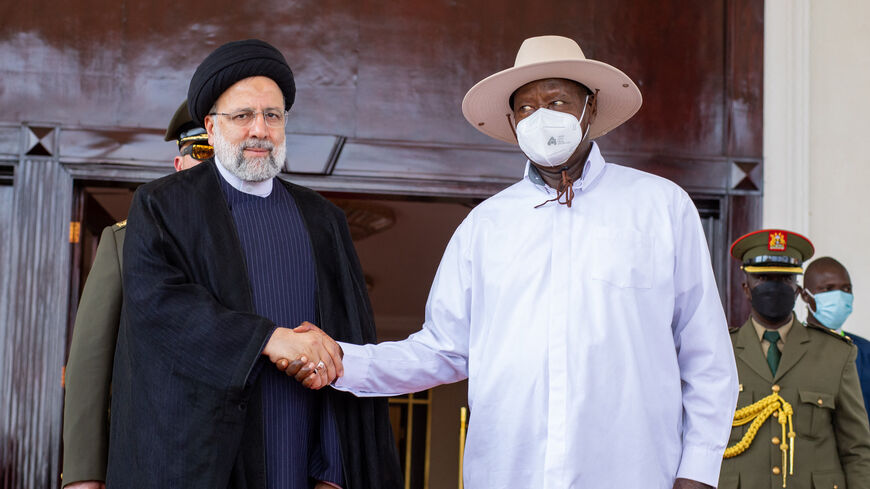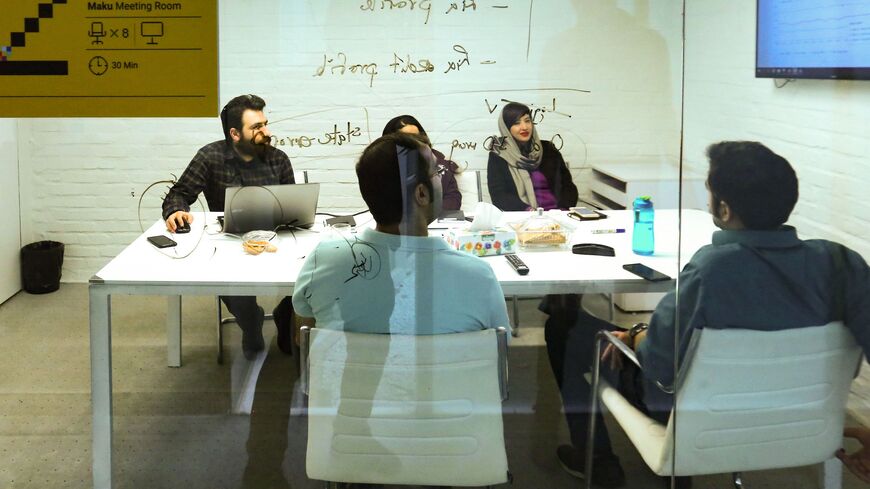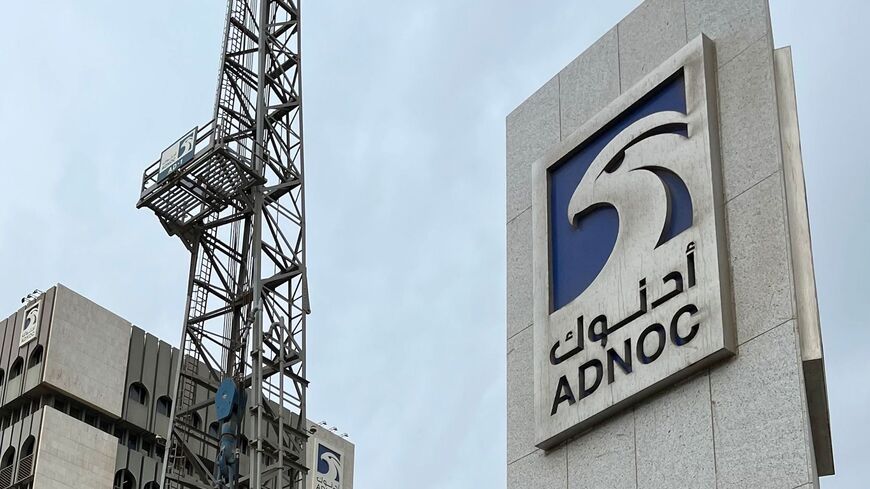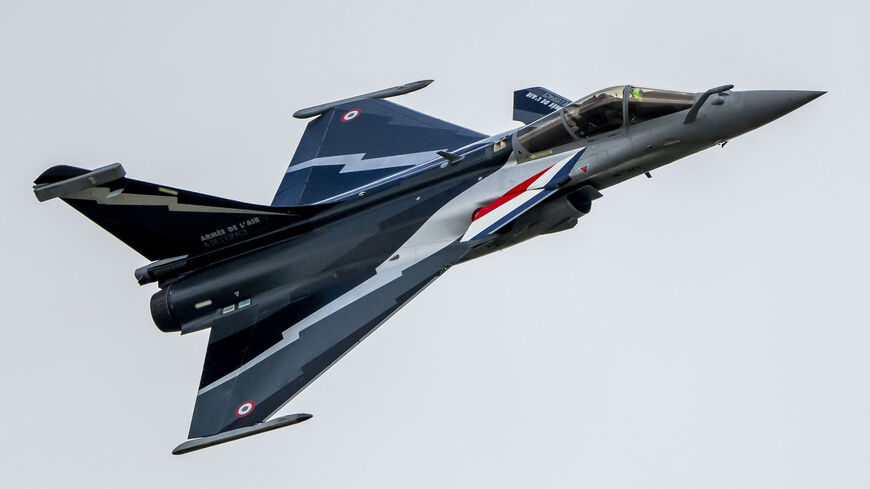Iran's banking sector faces hurdles to reconnect to global financial system post-sanctions
Al-Monitor Pro Members
Dr. Bijan Khajehpour
Managing Partner, Eurasian Nexus Partners, Vienna, Austria
Oct. 6, 2022
Even after a potential lifting of secondary US sanctions, Iran’s banking sector will be in need of reforms to successfully reconnect to the global financial system. Issues such as remaining sanctions and regulations related to the international financial watchdog, the Financial Action Task Force (FATF), will loom large in the assessment of international banks. However, Iran’s membership in the Shanghai Cooperation Organization (SCO) will ease some of the pressure on the country’s financial sector.
- Over the past decades, external sanctions have hampered the development of the country’s financial sector, which has been relatively isolated internationally.
- There are three types of commercial banks in Iran: governmental, semi-state and private. The governmental banks include the largest entity, Bank Melli Iran, as well as a number of sectoral banks such as the Bank of Agriculture. The semi-state banks are formerly governmental banks that were transferred to semi-state foundations through a pseudo-privatization. Private banks are relatively new and small in size, but they have played an important role in modernizing banking in Iran.
- A number of Iranian banks have branches and also stand-alone banking licenses outside Iran, especially in Europe and in the region. The operation of such entities has been limited due to sanctions.
- In 2016, when the Joint Comprehensive Plan of Action (JCPOA), more commonly known as the Iran nuclear deal, was initially implemented and sanctions were lifted, Iran’s banking sector was the weak link in the country’s attempts to reconnect to the global economy.
- Key obstacles were the failure to upgrade the banking standards and pass legislation to meet the compliance standards expected by the FATF. In its 2019 declaration, FATF stated: “While acknowledging that Iran has recently adopted the AML-CFT bylaw, …, the FATF expresses its disappointment that the Action Plan remains outstanding.” Iran’s failure to fully implement the relevant legislations is a reflection of its opaque business culture and the presence of many semi-state actors in the ownership of banks and corporations. In fact, the semi-state sector has engaged in a genuine push against transparency in banking transactions.
- Opponents of greater transparency are usually affiliated with entities that have engaged in corrupt practices. Incidentally, in 2019 former Foreign Minister Mohammad Javad Zarif admitted on the record that money laundering existed in high volumes.
- At the same time, lack of compliance standards and opaque ownership structures have been cited as the main reasons for the hesitation of international banks and companies to engage the Iranian market.
- In addition, the US withdrawal from the JCPOA and the re-introduction of sanctions also undermined any attempts to upgrade banking laws and regulations.
- In parallel, even though the Central Bank of Iran (CBI) has itself been subject to sanctions and pressure, it has tried to reform some of the banking regulations and introduce some basic tenets of anti-money laundering (AML) standards. However, the hands of the current CBI governor, Ali Salehabadi, are tied by the complex political structure in the country.
- One of the important reforms of the past few years has been the merger of all banks belonging to military organizations into the oldest bank in the country, Sepah Bank. This merger streamlined the footprint of military organizations in the banking sector.
- Should the US sanctions be lifted in the next few months, the government will have to make a decision on how to interact with the international financial system, especially as the economy would need international financial instruments, including bonds and financing structures.
Scenario 1: Iran mainly relies on the SCO to connect to international financial flows.
In line with the overall trade policy, Tehran could rely on the forging of relations with the Shanghai Cooperation Organization (SCO), which will pave the way for banking and financial cooperation with other SCO members. For example, Iran and Russia have decided to connect their banking messaging services, essentially rendering the services of SWIFT irrelevant for transactions between the two banking networks. This could also happen with other SCO members.
With or without the lifting of US sanctions, Tehran could mainly focus its international banking relations on the frameworks provided in the SCO membership. Iran would certainly seek to be a proactive player in SCO’s Interbank Consortium and also interact with the Asian Bank of Infrastructure, where Iran is a shareholder. In this scenario, Iran would limit its interaction with Western banks to a minimum but still seek its current removal from the FATF blacklist so that it can more feasibly work with non-Western banks and institutions. In this scenario, the subsidiaries of Iranian banks in Western countries will revive the operations and become the main linkages between Iranian banks and Western enterprises.
Scenario 2: Iran opts to integrate with the global system post-sanctions.
Considering the fact that post-sanctions, Iran’s trade relations with Western nations will grow, Tehran would be better off improving its relations with the global system and interacting with Western institutions. In this scenario, the officials would have to put greater effort into complying with the FATF designated banking standards and put in place all the actions related to implementing legislation. However, such full compliance would also require a number of structural and political reforms that Iran may not be ready to engage in. On this topic, the mentioned FATF declaration demands that Iran “apply enhanced due diligence with respect to business relationships and transactions with natural and legal persons from Iran, consistent with FATF Recommendation 19, including (1) obtaining information on the reasons for intended transactions; and (2) conducting enhanced monitoring of business relationships by increasing the number and timing of controls applied and selecting patterns of transactions that need further examination.”
Such changes would require a greater degree of transparency in the transactions between the country and its various proxies in the region — something that a segment of the current power structure is rejecting vehemently.
The push and pull effects between political pressures not to increase transparency and technocratic attempts to implement modern standards will continue in the foreseeable future. The balance between these two factors could change if sanctions are lifted, in which scenario 1 would witness greater cooperation between Iranian banks with their counterparts in SCO member countries.
The most likely scenario at the current juncture will be Iran focusing mainly on deepening banking ties with SCO members, especially as banking links with Western institutions remain exposed to primary US sanctions as well as further pressure by a future US administration, the FATF and other international bodies.
Bijan Khajehpour is the managing partner at Eurasian Nexus Partners - eunepa.com - a Vienna-based international consulting firm. He also sits on the board of the Europe Middle East Research Group. He is considered an expert on geopolitics of energy and the Iranian economy and energy sector.
We're glad you're interested in this memo.
Memos are one of several features available only to PRO Expert members. Become a member to read the full memos and get access to all exclusive PRO content.

Already a Member? Sign in
The Middle East's Best Newsletters
Join over 50,000 readers who access our journalists dedicated newsletters, covering the top political, security, business and tech issues across the region each week.
Delivered straight to your inbox.
Free
What's included:
Free newsletters available:
- The Takeaway & Week in Review
- Middle East Minute (AM)
- Daily Briefing (PM)
- Business & Tech Briefing
- Security Briefing
- Gulf Briefing
- Israel Briefing
- Palestine Briefing
- Turkey Briefing
- Iraq Briefing
Premium Membership
Join the Middle East's most notable experts for premium memos, trend reports, live video Q&A, and intimate in-person events, each detailing exclusive insights on business and geopolitical trends shaping the region.
$25.00 / month
billed annually
$31.00 / month
billed monthly
What's included:
Memos - premium analytical writing: actionable insights on markets and geopolitics.
Live Video Q&A - Hear from our top journalists and regional experts.
Special Events - Intimate in-person events with business & political VIPs.
Trend Reports - Deep dive analysis on market updates.
We also offer team plans. Please send an email to pro.support@al-monitor.com and we'll onboard your team.
Already a Member? Sign in






